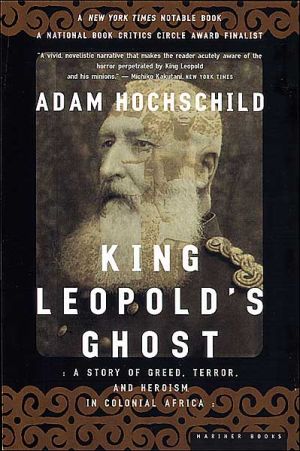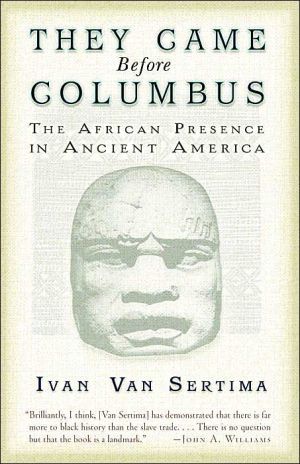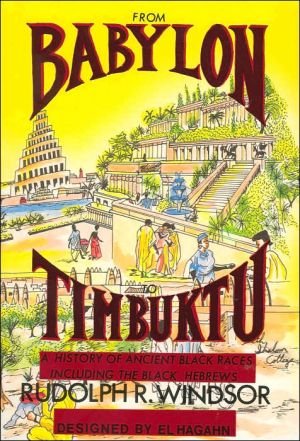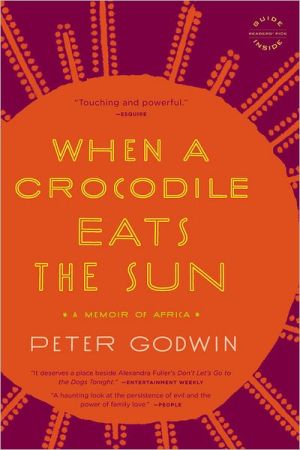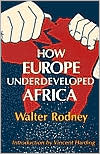King Leopold's Ghost: A Story of Greed, Terror, and Heroism in Colonial Africa
In the 1880s, as the European powers were carving up Africa, King Leopold II of Belgium seized for himself the vast and mostly unexplored territory surrounding the Congo River. Carrying out a genocidal plundering of the Congo, he looted its rubber, brutalized its people, and ultimately slashed its population by ten million—all the while shrewdly cultivating his reputation as a great humanitarian. Heroic efforts to expose these crimes eventually led to the first great human rights movement of...
Search in google:
In the 1880's, as the European powers were carving up Africa, King Leopold II of Belgium seized for himself the vast and largely unexplored territory surrounding the Congo River. Carrying out a genocidal plundering of the Congo, he looted its rubber, brutalized its people, and ultimately slashed the population by ten million--all while shrewdly cultivating his international reputation as a great humanitarian. Heroic efforts to expose this secret crime finally led to the first great international human rights movement of the 20th century in which everyone from Mark Twain to the Archbishop of Canterbury participated. King Leopold's Ghost is the haunting portrait of a megalomaniac of monstrous proportions, a man as cunning as any of the great Shakespearean villains. It is also the deeply involving story of those who fought Leopold and of the explorers, missionaries, and rubber workers who witnessed the horror. With a cast of characters richer than any novelist could invent, this book will permanently inscribe these too long forgotten events on the conscience of the West. The New York Times - Michiko Kakutani A vivid, novelistic narrative that makes the reader acutely aware of the magnitude of the horror perpetrated by King Leopold and his minions.
Chapter One \ \ \ "I SHALL NOT GIVE UP THE CHASE"\ \ \ On January 28, 1841, a quarter-century after Tuckey's failed expedition, the man who would spectacularly accomplish what Tuckey tried to do was born in the small Welsh market town of Denbigh. He was entered on the birth register of St. Hilary's Church as "John Rowlands, Bastard" — an epithet that was to mark the boy for the rest of his life, a life obsessively devoted to living down a sense of shame. Young John was the first of five illegitimate children born to Betsy Parry, a housemaid. His father may have been John Rowlands, a local drunkard who died of delirium tremens, or a prominent and married lawyer named James Vaughan Horne, or a boyfriend of Betsy Parry's in London, where she had been working.\ After giving birth, Betsy Parry departed from Denbigh in disgrace, leaving her baby behind in the home of his two uncles and his maternal grandfather, a man who believed a boy needed a "sound whipping" if he misbehaved. When John was five, his grandfather died, and the uncles immediately got rid of their unwanted nephew by paying a local family half a crown a week to take him in. When the family asked for more money, the uncles refused. One day the foster family told young John that their son Dick would take him to visit his "Aunt Mary" in another village:\ \ \ The way seemed interminable and tedious.... At last Dick set me down from his shoulders before an immense stone building, and, passing through tall iron gates, he pulled at a bell, which I could hear clanging noisily in the distant interior. A sombre-faced stranger appeared at the door, who, despite my remonstrances, seized me by the hand and drew me within, while Dick tried to sooth my fears with glib promises that he was only going to bring Aunt Mary to me. The door closed on him and, with the echoing sound, I experienced for the first time the awful feeling of utter desolateness.\ \ \ Six-year-old John Rowlands was now an inmate of the St. Asaph Union Workhouse.\ Records of life at St. Asaph's are generally covered by a veil of Victorian euphemism, but a local newspaper complained that the master of the workhouse was an alcoholic who took "indecent liberties" with women on his staff. An investigative commission that visited the workhouse in 1847, about the time John Rowlands arrived, reported that male adults "took part in every possible vice," and that children slept two to a bed, an older child with a younger, resulting in their starting "to practice and understand things they should not." For the rest of his life, John Rowlands would show a fear of sexual intimacy in any form.\ Whatever John may have endured or seen in the workhouse dormitory, in its schoolroom he thrived. For his achievements he won a prize Bible from the local bishop. He was fascinated by geography. He had an unusual ability to mimic someone else's handwriting after studying it for a few minutes. His own penmanship was strikingly graceful; his youthful signature was stylish and forward-leaning, with the stems and tails of the letters sweeping dramatically far above and below the line. It was as if, through his handwriting, he were trying to pull himself out of disgrace and turn the script of his life from one of poverty to one of elegance.\ One evening, when John was twelve, his supervisor "came up to me during the dinner-hour, when all the inmates were assembled, and, pointing out a tall woman with an oval face, and a great coil of dark hair behind her head, asked me if I recognized her.\ "`No, sir,' I replied.\ "`What, do you not know your own mother?'\ "I started, with a burning face, and directed a shy glance at her, and perceived she was regarding me with a look of cool, critical scrutiny. I had expected to feel a gush of tenderness towards her, but her expression was so chilling that the valves of my heart closed as with a snap."\ Adding to his shock was the fact that his mother had brought two new illegitimate children to St. Asaph's with her, a boy and a girl. Some weeks later, she left the workhouse. For John, it was the latest in a chain of abandonments.\ At fifteen, John left St. Asaph's and stayed with a succession of relatives, all of whom seemed queasy about sheltering a poorhouse cousin. At seventeen, while he was living with an uncle in Liverpool and working as a butcher's delivery boy, he feared he was about to be turned out once more. One day he delivered some meat to an American merchant ship at the docks, the Windermere. The captain eyed this short but sturdy-looking young man and asked, "How would you like to sail in this ship?"\ In February 1859, after a seven-week voyage, the Windermere landed in New Orleans, where the young newcomer jumped ship. He long remembered the city's fascinating array of smells: tar, brine, green coffee, rum, and molasses. Roaming the streets in search of work, on the porch of a warehouse he spied a middle-aged man in a stovepipe hat, a cotton broker, as it turned out, and approached him: "Do you want a boy, sir?"\ The cotton broker, impressed by John's only reference, the prize Bible with the bishop's inscription, took on the Welsh teenager as an employee. Soon after, young John Rowlands, now living in the New World, decided to give himself a new name. The procedure was gradual. In the 1860 New Orleans census, he is listed as "J. Rolling." A woman who knew him at this time remembered him as John Rollins: "smart as a whip, and much given to bragging, big talk and telling stories." Within a few years, however, he began using the first and last name of the merchant who had given him his job. He continued to experiment with the middle names, using Morley, Morelake, and Moreland before finally settling on Morton. And so the boy who had entered the St. Asaph Union Workhouse as John Rowlands became the man who would soon be known worldwide as Henry Morton Stanley.\ Stanley gave himself not only a new name; he tried for the rest of his life to give himself a new biography. The man who would become the most famous explorer of his time, renowned for his accurate observations of African wildlife and terrain, was a world-class obfuscator when it came to his early life. In his autobiography, for example, he tells of leaving the Welsh workhouse in melodramatic terms: he leaped over a garden wall and escaped, he claims, after leading a class rebellion against a cruel supervisor named James Francis, who had viciously brutalized the entire senior class. "`Never again,' I shouted, marvelling at my own audacity. The words had scarcely escaped me ere I found myself swung upwards into the air by the collar of my jacket and flung into a nerveless heap on the bench. Then the passionate brute pummelled me in the stomach until I fell backward, gasping for breath. Again I was lifted, and dashed on the bench with a shock that almost broke my spine." Stanley was then a vigorous, healthy fifteen-year-old and would not have been an easy victim for Francis, a former coal miner who had lost one hand in a mining accident. Other students later recalled no mutiny, much less one led by Stanley; they remembered Francis as a gentle man and Stanley as a teacher's pet, often given favors and encouragement and put in charge of the class when Francis was away. Workhouse records show Stanley leaving not as a runaway but to live at his uncle's while going to school.\ Equally fanciful is Stanley's account of his time in New Orleans. He lived, he says, at the home of the benevolent cotton broker, Henry Stanley, and his saintly, fragile wife. When a yellow fever epidemic struck the city, she sickened and died, in a bed curtained with white muslin, but at the moment of death "she opened her mild eyes, and spoke words as from afar: `Be a good boy. God bless you!'"\ Soon after, her sorrowing widower clasped his young tenant and employee to his breast and declared that "in future you are to bear my name." What followed, Stanley claims, were two idyllic years of traveling on business with the man he refers to as "my father." They took river boats up and down the Mississippi, walking the decks together, reading aloud to each other, and talking about the Bible. But sadly, in 1861, Stanley's generous adoptive father followed his beloved wife into the next world. "For the first time I understood the sharpness of the pang which pierces the soul when a loved one lies with folded hands icy cold in the eternal sleep. As I contemplated the body I vexed myself with asking, Had my conduct been as perfect as I then wished it had been? Had I failed in aught? Had I esteemed him as he deserved?"\ A poignant story — except that records show that both the elder Stanleys did not die until 1878, seventeen years later. Although they did adopt two children, both were girls. According to city directories and census reports, young Stanley lived not in their home but in a series of boarding houses. And Stanley the merchant had an angry quarrel and permanent rupture with his employee, after which he asked that the young man's name never again be mentioned in his presence.\ Stanley's wishful description of his youth clearly owes something to his contemporary Charles Dickens, similarly fond of deathbed scenes, saintly women, and wealthy benefactors. It also owes much to Stanley's feeling that his real life was so embedded in disgrace that he would have to invent whatever self he presented to the world. Not only did he make up events in his autobiography, but he created journal entries about a dramatic shipwreck and other adventures that never happened. Sometimes an episode in his African travels appears in strikingly different form in his journal, in letters, in the newspaper articles he sent home, and in the books he wrote after each trip. Psychohistorians have had a feast.\ One of the more revealing episodes Stanley describes or invents took place soon after he arrived in New Orleans, when he was sharing a bed in a boarding house with Dick Heaton, another young man who had come over from Liverpool as a deckhand. "He was so modest he would not retire by candle-light, and ... when he got into bed he lay on the verge of it, far removed from contact with me. When I rose in the morning I found that he was not undressed." One day Stanley awoke and, looking at Dick Heaton asleep at his side, was "amazed to see what I took to be two tumours on his breast.... I sat up... and cried out ... `I know! I know! Dick, you are a girl.'" That evening Dick, who by then had confessed to being Alice, was gone. "She was never seen, or heard of, by me again; but I have hoped ever since that Fate was as propitious to her, as I think it was wise, in separating two young and simple creatures who might have been led, through excess of sentiment, into folly."\ Like his Dickensian deathbed scene, this has an echo of legend — of the girl who disguises herself as a boy so that she can enlist as a soldier or run away to sea. Whether real or made up, the episode's emotional message is the same: Stanley's horror at the idea of finding himself so close to a woman.\ When the American Civil War began, Stanley joined the Confederate Army, and in April 1862 went into combat with his regiment of Arkansas Volunteers at the battle of Shiloh, in Tennessee. On the second day of fighting he was surrounded by half a dozen Union soldiers and soon afterward found himself in a crowded, typhus-ridden prisoner-of-war camp outside Chicago. The only way out of this miserable place, he discovered, was to enlist in the Union Army, which he promptly did, only to fall ill with dysentery and receive a medical discharge. After working his way back and forth across the Atlantic as a sailor, in 1864 he enlisted in the Union Navy. His fine handwriting got him a post as ship's clerk on the frigate Minnesota. When the ship bombarded a Confederate fort in North Carolina, Stanley became one of the few people to see combat on both sides of the Civil War.\ The Minnesota returned to port in early 1865, and the restless Stanley deserted. Now the pace of his movements accelerates. It is as if he has no more patience for confining, regulated institutions like the workhouse, a merchant ship, or the military. He goes first to St. Louis, signs on as a free-lance contributor to a local newspaper, and sends back a series of florid dispatches from ever farther west: Denver, Salt Lake City, San Francisco. He writes disapprovingly of "debauchery and dissipation" and the "whirlpool of sin" of the Western frontier towns.\ After an adventure-seeking trip to Turkey, Stanley returned to the American West, and his career as a newspaperman took off. For most of 1867 he covered the Indian Wars, sending dispatches not only to St. Louis but to East Coast papers as well. It did not matter that the long, hopeless struggle of the southern Plains Indians against the invaders of their land was almost at an end, that the expedition Stanley accompanied saw little combat, or that most of the year was devoted to peace negotiations; Stanley's editors wanted war reporting about dramatic battles, and this he gave them: "The Indian War has at last been fairly inaugurated.... the Indians, true to their promises, true to their bloody instincts, to their savage hatred of the white race, to the lessons instilled in their bosoms by their progenitors, are on the warpath."\ These dispatches caught the eye of James Gordon Bennett, Jr., the flamboyant, hard-driving publisher of the New York Herald. He hired Stanley to cover an exotic little war that promised to sell many newspapers: a punitive expedition the British government was organizing against the Emperor of Abyssinia. At Suez, on his way to the war, Stanley bribed the chief telegraph clerk to make sure that when correspondents' reports arrived from the front, his would be the first cabled home. His foresight paid off, and his glowing account of how the British won the war's only significant battle was the first to reach the world. In a grand stroke of luck, the trans-Mediterranean telegraph cable broke just after Stanley's stories were sent off. The dispatches of his exasperated rivals, and even the British army's official reports, had to travel part of the way to Europe by ship. In a Cairo hotel, in June 1868, Stanley savored his scoop and the news that he had been named a permanent roving foreign correspondent for the Herald. He was twenty-seven years old.\ \ \ * * *\ \ \ Now based in London, Stanley could hear around him the first rumblings of what would before long become known as the Scramble for Africa. In a Europe confidently entering the industrial age, brimming with the sense of power given it by the railroad and the oceangoing steamship, there now arose a new type of hero: the African explorer. To those who had lived in Africa for millennia, of course, "there was nothing to discover, we were here all the time," as a future African statesman would put it. But to nineteenth-century Europeans, celebrating an explorer for "discovering" some new corner of Africa was, psychologically, a prelude to feeling that the continent was theirs for the taking.\ In a Europe ever more tightly knit by the telegraph, the lecture circuit, and widely circulating daily newspapers, African explorers became some of the first international celebrity figures, their fame crossing national boundaries like that of today's champion athletes and movie stars. From Africa's east coast, the Englishmen Richard Burton and John Speke made a bold journey to the interior to find Lake Tanganyika, the longest freshwater lake in the world, and Lake Victoria, the continent's largest body of water, and capped their adventure with a spectacle the public always enjoys from celebrities, a bitter public falling-out. From Africa's west coast, the Frenchman Paul Belloni Du Chaillu brought back the skins and skeletons of gorillas, and told riveted audiences how the great hairy beasts abducted women to their jungle lairs for purposes too vile to be spoken of.\ Underlying much of Europe's excitement was the hope that Africa would be a source of raw materials to feed the Industrial Revolution, just as the search for raw materials — slaves — for the colonial plantation economy had driven most of Europe's earlier dealings with Africa. Expectations quickened dramatically after prospectors discovered diamonds in South Africa in 1867 and gold some two decades later. But Europeans liked to think of themselves as having higher motives. The British, in particular, fervently believed in bringing "civilisation" and Christianity to the natives; they were curious about what lay in the continent's unknown interior; and they were filled with righteousness about combating slavery.\ Britain, of course, had only a dubious right to the high moral view of slavery. British ships had long dominated the slave trade, and only in 1838 had slavery's vestiges been abolished in the British Empire. But the English quickly forgot all this, just as they forgot that there had been slave revolts in the West Indies and that economic factors had hastened slavery's end by making it less profitable. In their opinion, slavery had come to an end throughout most of the world for one reason only: British virtue. When London's Albert Memorial was built in 1872, one of its statues showed a young black African, naked except for some leaves over his loins. The memorial's inaugural handbook explained that he was a "representative of the uncivilised races" listening to a European woman's teaching, and that the "broken chains at his feet refer to the part taken by Great Britain in the emancipation of slaves."\ Significantly, most British and French antislavery fervor in the 1860s was directed not at Spain and Portugal, which allowed slavery in their colonies, or at Brazil, with its millions of slaves. Instead, righteous denunciations poured down on a distant, weak, and safely nonwhite target: the so-called Arab slave-traders raiding Africa from the east. In the slave markets of Zanzibar, traders sold their human booty to Arab plantation owners on the island itself, and to other buyers in Persia, Madagascar, and the various sultanates and principalities of the Arabian peninsula. For Europeans, here was an ideal target for disapproval: one "uncivilised" race enslaving another.\ Arab was a misnomer; Afro-Arab would have been more accurate. Although their captives often ended up in the Arab world, the traders on the African mainland were largely Swahili-speaking Africans from territory that today is Kenya and Tanzania. Many had adopted Arab dress and Islam, but only some of them were of even partly Arab descent. Nonetheless, from Edinburgh to Rome, indignant books and speeches and sermons denounced the vicious "Arab" slavers — and with them, by implication, the idea that any part of Africa might be colonized by someone other than Europeans.\ All these European impulses toward Africa — antislavery zeal, the search for raw materials, Christian evangelism, and sheer curiosity — were embodied in one man, David Livingstone. Physician, prospector, missionary, explorer, and at one point even a British consul, he wandered across Africa for three decades, starting in the early 1840s. He searched for the source of the Nile, denounced slavery, found Victoria Falls, looked for minerals, and preached the gospel. As the first white man to cross the continent from coast to coast, he became a national hero in England.\ In 1866, Livingstone set off on another long expedition, looking for slave-traders, potential Christians, the Nile, or anything else that might need discovering. Years passed, and he did not return. As people began to wonder about his fate, New York Herald publisher James Gordon Bennett saw a great opportunity. In 1869, or so went the story Stanley would tell, Stanley received an urgent telegram from Bennett, his boss: COME TO PARIS ON IMPORTANT BUSINESS. A journalist, Stanley wrote with the self-importance that had now become part of his public persona, is "like a gladiator in the arena.... Any flinching, any cowardice, and he is lost. The gladiator meets the sword that is sharpened for his bosom — the ... roving correspondent meets the command that may send him to his doom." He dashed to Paris to meet his publisher at the Grand Hotel. There, a dramatic conversation about Livingstone climaxed with Bennett's saying, "I mean that you shall go, and find him wherever you may hear that he is, and to get what news you can of him, and perhaps ... the old man may be in want: — take enough with you to help him should he require it ... do what you think best — BUT FIND LIVINGSTONE!"\ This scene provided a splendid introduction for Stanley's first book, How I Found Livingstone, and it made Bennett, to whom the volume is dedicated, appear the far-sighted initiator of the great adventure. But nothing like this conversation seems to have happened. The pages of Stanley's journal for the dates around the alleged meeting with Bennett have been torn out, and in fact Stanley did not even begin looking for Livingstone until well over a year later.\ However inflated, Stanley's story of Bennett's dramatic summons to Paris sold plenty of books, and to Stanley that mattered. He was after more than fame as an explorer; his melodramatic flair made him, as one historian has remarked, "the progenitor of all the subsequent professional travel writers." His articles, books, and speaking tours brought him greater riches than any other travel writer of his time, and probably of the next century as well. With every step he took in Africa, Stanley planned how to tell the story once he got home. In a twentieth-century way, he was always sculpting the details of his own celebrity.\ To leave no clues for possible competitors in the search for Livingstone, Stanley carefully spread the word, as he headed for Africa, that he was planning to explore the Rufiji River. He first went to Zanzibar to recruit porters to carry his supplies, and from there wrote a stream of letters to Katie Gough-Roberts, a young woman in his home town of Denbigh. Theirs had been a brief, stiff, nervous courtship, punctuated by Stanley's many departures for journalistic assignments, but in his letters he poured out his heart to her, confessing the painful secret of his illegitimate birth. Stanley planned to marry her on his return from finding Livingstone.\ At last, in the spring of 1871, accompanied by a dog named Omar and porters, armed guards, an interpreter, cooks, a guide carrying the American flag, and two British sailors — some 190 men in all, the largest African exploring expedition to date — Stanley marched inland from the east coast in search of Livingstone, who by now had not been seen by any European for five years. "Wherever he is," Stanley declared to his New York newspaper readers, "be sure I shall not give up the chase. If alive, you shall hear what he has to say; if dead I will find and bring his bones to you."\ Stanley had to trek for more than eight months before he found the explorer and was able to utter his famous "Dr. Livingstone, I presume?" The long search was shaped into legend by his stream of dispatches and Bennett's realization that his newspaper had one of the great human-interest scoops of the century. Because Stanley was the only source of information about the search (his two white companions died during the expedition, and no one ever bothered to interview the surviving porters), the legend remained heroic. There were the months of arduous marching, the terrible swamps, the evil "Arab" slave-traders, the mysterious deadly diseases, the perilous attacks by crocodiles, and finally Stanley's triumphant discovery of the gentle Dr. Livingstone.\ Livingstone was haloed in Stanley's prose, for he was the noble father figure the younger man had long been looking for and, to some extent, had actually found. According to Stanley, the experienced sage and the bold young hero became fast friends as they explored together for several months. (They sailed around the northern end of Lake Tanganyika, hoping to find the Nile flowing out, but to their disappointment found only another river flowing in.) The older man passed on his wisdom to the younger before they sadly bade each other farewell and parted forever. Conveniently for Stanley, Livingstone remained in Africa and died soon afterward, before he could come home to share the spotlight or to tell the story at all differently. Stanley cannily sprinkled his tale with picturesque chiefs, exotic sultans, and faithful servants, and he introduced it with the sweeping generalizations that allowed his readers to feel at home in an unfamiliar world: "The Arab never changes"; "The Banyan is a born trader"; "For the half-castes I have great contempt."\ Unlike the uncombative and paternalistic Livingstone, who traveled without a huge retinue of heavily armed followers, Stanley was a harsh and brutal taskmaster. "The blacks give an immense amount of trouble; they are too ungrateful to suit my fancy," he wrote while on the journey. Although they are softened by successive revisions, his writings show him given to explosive rage. He drove his men up hills and through swamps without letup. "When mud and wet sapped the physical energy of the lazily-inclined, a dog-whip became their backs, restoring them to a sound -- sometimes to an extravagant — activity." Only half a dozen years earlier Stanley had deserted from the U.S. Navy, but now he noted with satisfaction how "the incorrigible deserters ... were well flogged and chained." People in the villages that the expedition marched through may well have mistaken it for another slave caravan.\ Like many whites who would follow him, Stanley saw Africa as essentially empty. "Unpeopled country," he called it. "What a settlement one could have in this valley! See, it is broad enough to support a large population. Fancy a church spire rising where that tamarind rears its dark crown of foliage, and think how well a score or two of pretty cottages would look instead of those thorn clumps and gum trees!" And again: "There are plenty of.... Pilgrim Fathers among the Anglo-Saxon race yet, and when America is filled up with their descendants, who shall say that Africa ... shall not be their next resting place?"\ To him and to his public, Stanley's future was now firmly linked to Africa. On his return to Europe, the French press compared his finding Livingstone to Hannibal's and Napoleon's crossing the Alps. Even more aptly, given Stanley's boasts about shooting anyone who got in his way, General William Tecumseh Sherman met the explorer for breakfast in Paris and likened Stanley's trip to his own scorched-earth march to the sea.\ The British were more hostile. The Royal Geographical Society had belatedly sent an expedition to find Livingstone, and its members had been appalled to cross paths with Stanley in Africa just as he was triumphantly boarding a ship to return home. Between the lines of huffy statements from the society's officials was their exasperation that their native son had been found by someone who was neither a proper explorer nor a proper Englishman, but a "penny-a-liner," writing for the American yellow press. Furthermore, some in England noticed, Stanley's American accent tended to change to a Welsh one whenever he got excited. The rumors about his Welsh birth and illegitimacy worried Stanley deeply, because, writing for a jingoistic and anti-British New York newspaper, he was vigorously claiming to be American born and bred. (He sometimes implied that he came from New York; sometimes from St. Louis. Mark Twain sent congratulations to his "fellow Missourian" for finding Livingstone.)\ Stanley, quick to feel rejected, especially by upper-crust Englishmen, now found himself rejected also by his fiancée. During his travels, he discovered, Katie Gough-Roberts had married an architect named Bradshaw. Stanley was desperate to retrieve the letters he had sent her, particularly the one in which he had told her about his origins. But when he wrote to ask for them, she refused to give them back except in person. At a lecture he gave in Manchester, she and her husband were in the audience. Afterward, she came to the house where he was staying and asked the butler to tell him she had the letter with her. Stanley sent the butler back to the door to collect it; once again she refused to hand it over to anyone but Stanley. He would not go to the door, and she departed, letter in hand. His hurt pride remained like an open wound. Before long he would once again seek solace in Africa.
\ From the Publisher"An enthralling story, full of fascinating characters, intense drama, high adventure, deceitful manipulations, courageous truth-telling, and splendid moral fervor . . .A work of history that reads like a novel." Christian Science Monitor\ "As Hochschild's brilliant book demonstrates, the great Congo scandal prefigured our own times . . . This book must be read and reread."—Neal Ascherson The Los Angeles Times\ "A vivid, novelistic narrative that makes the reader acutely aware of the magnitude of the horror perpetrated by King Leopold and his minions." The New York Times\ "King Leopold’s Ghost is a remarkable achievement, hugely satisfying on many levels. It overwhelmed me in the way Heart of Darkness did when I first read it—and for precisely the same reasons: as a revelation of the horror that had been hidden in the Congo."—Paul Theroux\ "Carefully researched and vigorously told, King Leopold’s Ghost does what good history always does—expands the memory of the human race." The Houston Chronicle\ \ \ \ \ \ Michiko KakutaniA vivid, novelistic narrative that makes the reader acutely aware of the magnitude of the horror perpetrated by King Leopold and his minions. \ — The New York Times\ \ \ Jeremy HardingA superb synoptic history of European misdemeanor in central Africa. \ — The New York Times Book Review\ \ \ \ \ Robin BlackburnThis book provides a wonderfully vivid account of an episode in the modern history of Africa that was tragic and terrible.... King Leopold's Ghost is an exemplary piece of history-writing: urgent, vivid and compelling.\ — Literary Review Magazine\ \ \ \ \ Christian Science MonitorThis true story of the Congo is 'full of fascinating characters, intense drama, high adventure, courageous truth-telling, and splendid moral fervor. . . A work of history that reads like a novel....An enthralling story\ \ \ \ \ The EconomistTo an already long list of tyrants which includes Hi-tler, Stalin, Pol Pot and Idi Amin, a late addition is required. 'Late' only because King Leopold II of Belgium (1835-1909) should always have been there. As 'owner' of the Congo Free State from 1885 to 1908 he was responsible for what Joseph Conrad once called 'the vilest scramble for loot that ever disfigured the his-tory of human conscience.' It is indeed a ghastly story of greed, lies and murder. And Adam Hochschild retells it well. 'King Leopold's Ghost' last week beat several excellent books to win the Lionel Gelber prize. . . . now the world's most important award for non-fiction. . . . Around the turn of this century in the depths of the Congo the bonds of humanity were unbound and the trappings of civilisation cast aside, releasing something diabolical which exists within us all. Mr. Hochschild conveys this particular-ly well.\ \ \ \ \ Publishers Weekly\ - Publisher's Weekly\ Hochschild's superb, engrossing chronicle focuses on one of the great, horrifying and nearly forgotten crimes of the century: greedy Belgian King Leopold II's rape of the Congo, the vast colony he seized as his private fiefdom in 1885. Until 1909, he used his mercenary army to force slaves into mines and rubber plantations, burn villages, mete out sadistic punishments, including dismemberment, and committ mass murder.\ The hero of Hochschild's highly personal, even gossipy narrative is Liverpool shipping agent Edmund Morel, who, having stumbled on evidence of Leopold's atrocities, became an investigative journalist and launched an international Congo reform movement with support from Mark Twain, Booker T. Washington and Arthur Conan Doyle. Other pivotal figures include Joseph Conrad, whose disgust with Leopold's "civilizing mission" led to Heart of Darkness; and black American journalist George Washington Williams, who wrote the first systematic indictment of Leopold's colonial regime in 1890.\ Hochschild The Unquiet Ghost documents the machinations of Leopold, who won over President Chester A. Arthur and bribed a U.S. senator to derail Congo protest resolutions. He also draws provocative parallels between Leopold's predatory one-man rule and the strongarm tactics of Mobuto Sese Seko, who ruled the successor state of Zaire. But most of all it is a story of the bestiality of one challenged by the heroism of many in an increasingly democratic world.\ \ \ \ \ \ Library JournalThe author of The Unquiet Ghost: Russia Remembers Stalin, one of Library Journal's best books of 1994, takes on another megalomaniac.\ \ \ \ \ Library JournalThe author of The Unquiet Ghost: Russia Remembers Stalin, one of Library Journal's best books of 1994, takes on another megalomaniac.\ \ \ \ \ Rebecca A. Clay...[D]raws on memoris, missionary accounts, government rcords, and the testimony of Africans themselves to unearth the long-forgotten facts behind Conrad's fiction....the kind remains a shadowy villain...[but] Hochschild vividly brings to life the activists whose battle agains Leopold dominates the book's second half.\ — WQ: The Wilson Quarterly\ \ \ \ \ Jeremy HardingA superb synoptic history of European misdemeanor in central Africa. \ — The New York Times Book Review\ \ \ \ \ Michiko KakutaniA vivid, novelistic narrative that makes the reader acutely aware of the magnitude of the horror perpetrated by King Leopold and his minions. \ — The New York Times\ \ \ \ \ Robert TaylorAdam Hochschild's spellbinding account of imperial machinations and how these led to the first major human-rights movement of this century present a dynamic story.\ — The Boston Globe\ \ \ \ \ Zachary KarabellIn King Leopold's Ghost, journalist Adam Hochschild chronicles the depredations of Belgian rule of the Congo (today's Zaire) between the 1880s and 1909, when Leopold, the king of Belgium, died. During this period, 5 million to 10 million people were killed, or died of starvation, disease and being worked to death. All of this for rubber, harvested from the thick vines that contained that precious gelatinous sap. Hochschild understandably wanted to know why so few of us have ever heard about the atrocities of Leopold's rule.\ Even today, travel in the Congo basin is excruciatingly difficult -- 100 years ago, it was usually fatal for those who attempted the journey. In 1874, Henry Stanley became the first Westerner to get to the interior of the Congo basin and survive to tell the tale. At the time, the competition for colonies was intense; in the late 19th century, such colonies were to a European state's power what market share is for corporations today. Sitting in his immense palaces in tiny Belgium, King Leopold finagled his way into gaining control of the Congo basin. Within a decade of Stanley's journey, Leopold ruled a territory bigger than England, France, Germany, Spain and Italy combined.\ By all accounts, Leopold was a narcissistic, sleazy, greedy man. He was also a master manipulator who used the vainglorious Stanley to convince the rest of Europe that his motives for wanting the Congo stemmed solely from a desire to put an end to "Arab slavery." Having rescued the Congolese from that non-existent threat, Leopold proceeded to enslave them himself.\ In time, a few European and American visitors to the Congo began to publicize the whippings, murders, rapes and other humiliations visited upon the Congolese by Leopold's administrators. Some of these visitors were American blacks, whose reports were discounted. Not until a group of Englishmen made exposing the injustices of Leopold's rule their own private crusade did the general public become aware of what was happening.\ Hochschild, co-founder of Mother Jones magazine, presents the story as a parable of human rights abuses stemmed by activism. While it would be reassuring to believe that Leopold's violence stopped as a result of intrepid crusaders, Hochschild doesn't make a convincing case. Yes, the reformers spoke at hundreds of meetings, letters were written, commissions heard testimony and governments disapproved. But the violence started to ebb only when the population declined to the point that labor got expensive and killing people by intent or neglect meant less profit.\ Hochschild prefers to see the Congo as a sorry tale that is in the end redemptive. Unfortunately, redemption in this case can only be found by distorting history. Viewed through a less idealistic lens, the Congo's history tells us that evil isn't only banal; it can also be profitable, and it often goes unpunished. Not an uplifting moral, but the harsh light of history often exposes aspects of humanity that most of us prefer not to see. Hochschild has written about a terrible period that we have tried to forget. It's a shame that he tries to shield himself and the reader from recognizing the full dimension of the horror. Hitler committed suicide; the Japanese were routed after Nanking; but Leopold died in his bed, vastly enriched by the suffering of millions.\ — SalonSept. 9, 1998\ \ \ \ \ \ Kirkus ReviewsJournalist-memoirist Hochschild (Finding the Trapdoor) recounts the crimes against humanity of Belgium's King Leopold II, whose brutal imperialist regime sparked the creation of Joseph Conrad's Heart of Darkness and the first major human-rights protest movement of this century.\ Hell-bent on building grandiose state monuments and palaces and on swelling royal coffers, Leopold sought to carve out of central Africa a fiefdom 76 times the size of Belgium. Cagily inveighing against local slave traders and inviting Christian missionaries to spread the Gospel, he transformed a philanthropic organization temporarily under his aegis into the Congo, his own personal colony. He plundered the Congo's bounty of rubber, instituted forced labor, and reduced the population by half (an estimated 10 million deaths from 1880 to 1920). To achieve compliance with rubber-gathering quotas, soldiers in the Force Publique, Leopold's colonial army, committed mass murder, cut off hands, severed heads, took hostages, and burnt villages. His misrule remained undetected for more than a decade because he won U.S. recognition of his claim to the Congo, used explorer Henry Morton Stanley to swindle chiefs out of land, and concealed the colony's budget.\ If Hochschild depicts Leopold not as a Hitleresque madman but as a liberal bogeyman ready to sacrifice all for the bottom line, he profiles the monarch's opponents in all their complicated humanity. These include George Washington William, an African-American journalist prone to exaggerating his own credentials but not Leopold's atrocities; Roger Casement, a British consul knighted for a damning Congo report, then later executed for participating in Ireland's 1916 rebellion, and exposed as a homosexual; and E.D. Morel, a journalist who, though committed to imperialism, led a decade-long campaign that succeeded in forcing Leopold to turn the Congo over to the citizens of Belgium. A searing history of evil and the heroes who exposed it.\ \ \
